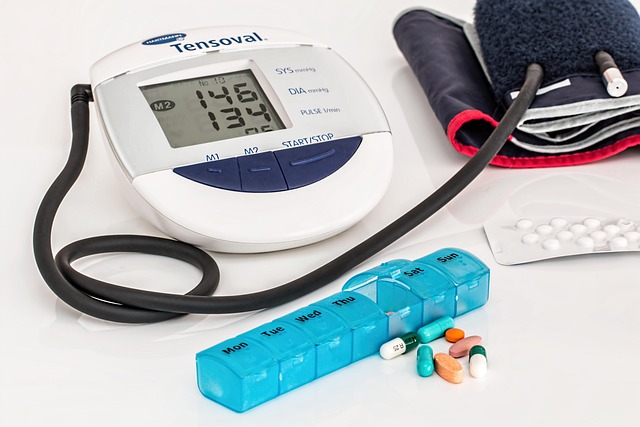Medications That Cause Kidney Disease: What You Should Know
Medications play a vital role in treating many health conditions, but some drugs can negatively affect kidney function over time. Prolonged use or high doses of certain medications may lead to kidney damage, potentially resulting in chronic kidney disease (CKD). Early recognition of symptoms related to kidney problems is important to help reduce further harm and support overall well-being.

What Are Medications That Can Cause Kidney Disease?
Several categories of medications are known to cause kidney damage through different mechanisms. Nonsteroidal anti-inflammatory drugs (NSAIDs) like ibuprofen, naproxen, and aspirin can reduce blood flow to the kidneys when used regularly. Certain antibiotics, including aminoglycosides and vancomycin, can directly damage kidney cells. ACE inhibitors and ARBs, while generally protective for kidneys, can sometimes cause acute kidney injury in vulnerable patients.
Chemotherapy drugs such as cisplatin and methotrexate are particularly nephrotoxic. Contrast dyes used in medical imaging procedures can trigger acute kidney problems, especially in people with pre-existing kidney disease or diabetes. Proton pump inhibitors, commonly prescribed for acid reflux, have been linked to chronic kidney disease when used long-term. Lithium, used for bipolar disorder, can cause both acute and chronic kidney damage.
How to Recognize the Signs and Symptoms of Kidney Disease
Early kidney disease often develops silently, making regular monitoring essential for people taking potentially harmful medications. Common symptoms include changes in urination patterns, such as increased frequency at night, foamy urine, or blood in urine. Swelling in the legs, ankles, feet, or face may indicate fluid retention due to decreased kidney function.
Fatigue and weakness can result from the buildup of waste products in the blood. Persistent nausea, vomiting, or loss of appetite may signal advancing kidney problems. High blood pressure that becomes difficult to control or sudden increases in blood pressure readings warrant immediate medical attention. Shortness of breath can occur when fluid accumulates in the lungs due to kidney dysfunction.
Laboratory tests provide the most reliable indicators of kidney problems. Rising creatinine levels, decreasing estimated glomerular filtration rate (eGFR), and protein in the urine are key markers that healthcare providers monitor to detect medication-induced kidney damage early.
Related Programs for Kidney Health Monitoring
Healthcare systems across the United States offer specialized programs designed to monitor kidney health in high-risk patients. Many hospitals and medical centers provide nephrology consultation services that include medication review and adjustment recommendations. The National Kidney Foundation sponsors community screening programs that offer free kidney function testing in various locations.
Medicare and most insurance plans cover routine kidney function monitoring for patients with diabetes, hypertension, or those taking nephrotoxic medications. Chronic kidney disease management programs typically include regular laboratory monitoring, dietary counseling, and medication optimization. Some healthcare systems offer specialized pharmacist-led programs that focus specifically on preventing drug-induced kidney problems.
Digital health platforms and smartphone applications help patients track their medications and symptoms, providing valuable data for healthcare providers. Many medical centers offer patient education programs that teach individuals how to protect their kidneys while managing other health conditions that require potentially harmful medications.
Preventing Medication-Induced Kidney Damage
Prevention strategies begin with open communication between patients and healthcare providers about all medications being taken, including over-the-counter drugs and supplements. Regular kidney function monitoring through blood tests allows early detection of problems before permanent damage occurs. Staying adequately hydrated helps the kidneys process medications more effectively and reduces the risk of drug-induced damage.
Healthcare providers can implement several protective measures, such as using the lowest effective doses of potentially nephrotoxic medications and avoiding combinations of drugs that increase kidney risks. For patients requiring contrast procedures, pre-hydration protocols and alternative imaging methods when possible can prevent contrast-induced nephropathy.
Patients with existing kidney disease or risk factors like diabetes and hypertension need more frequent monitoring and may require dose adjustments or alternative medications. Avoiding NSAIDs when possible and using acetaminophen for pain relief can reduce kidney risks. When nephrotoxic medications are necessary, healthcare providers may prescribe additional medications to protect kidney function.
Understanding drug interactions is crucial, as some combinations significantly increase the risk of kidney damage. Patients should maintain an updated medication list and share it with all healthcare providers to ensure comprehensive monitoring and prevention strategies.
The key to preventing medication-induced kidney disease lies in balancing the benefits of necessary treatments with proactive monitoring and protective measures. Regular communication with healthcare providers, adherence to monitoring schedules, and awareness of warning signs help ensure that essential medications can be used safely while preserving kidney health for the long term.
This article is for informational purposes only and should not be considered medical advice. Please consult a qualified healthcare professional for personalized guidance and treatment.




